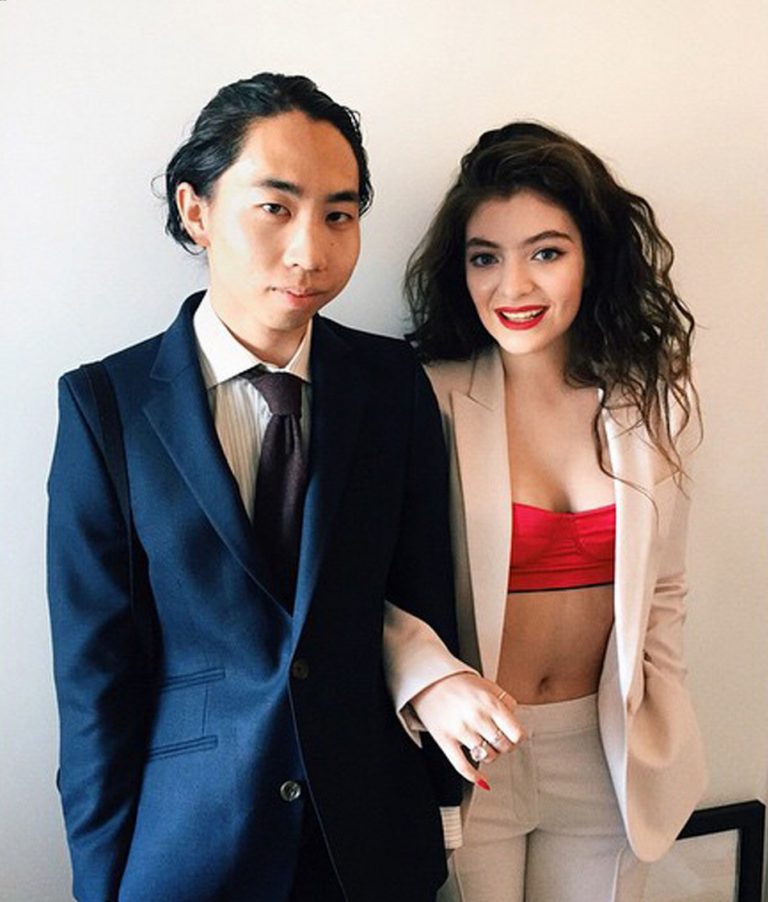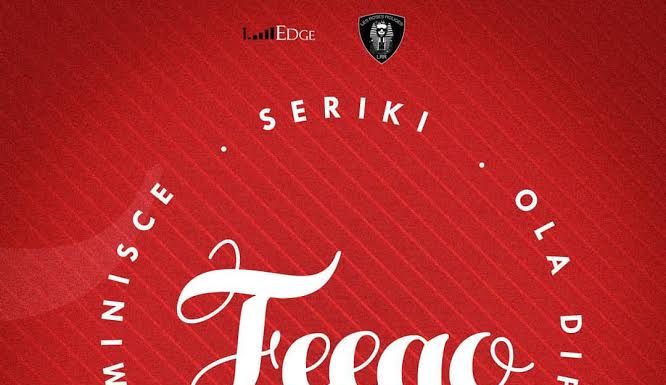
It would amount to belaboring the obvious to state that the Nigerian music industry has grown in leaps and bounds over the past 17 years. Nigerian artistes have not only become the toast of Africa, they are also now the darlings of the world.
However, the music business in Nigeria, and in most parts of the world, is very capital intensive. One of the most important needs of an aspiring singer is to have unfettered access to a studio, and this doesn’t come cheap. Setting up a studio is quite expensive and even paying for sessions in one could be financially taxing for a young artiste whose only source of funding is his or her pocket money. In addition to a lot of other expenses, musicians also have to shoot quality videos, which are usually very expensive. Needless to say that all these services are best provided by record companies, which will make them available for the artistes with the intention of later making a profit from their investments.
Going by the standard of how record companies are run in developed countries, one could be tempted to say that Nigerian record labels don’t have the right structure to properly function in the business terrain.
However, some record company executives, who spoke with SUNDAY SCOOP, disagreed that there was no structure in the industry. The CEO of Kennis Music, Kenny Ogungbe, said, “It is rubbish to say that there are no structures in the industry. There are no structures, yet people like 2face, Wizkid, Tiwa Savage, Davido, Burna Boy, and many others came up. Anybody who says there are no structures is being unfair to the people that are working hard in the industry. People just say whatever they like because the music industry is an all-comers affair. Many people claim to be record label owners, yet they don’t even have offices.”
A PR executive with Chocolate City Music, Aisosa Okundaye, also believed there are structures in the industry but they are rarely maintained.
He said, “I don’t agree that there is no structure in the industry. Structures exist. The problem is about following the structures and allowing them to work. The structure is about knowing what to do, where to do it and how to do it. The record label should be a structured entity because there are various departments in place to make things work.”
Deals gone awry
One too many Nigerian artistes have sad tales to tell when it comes to their relationships with record labels. However, the blame is not one-sided; several artistes have also ‘absconded’ from deals before the expiration of their contracts. Below are some artistes who have fallen out with their record labels.

Vector
Popular rapper, Olanrewaju Ogunmefun, aka Vector, was engaged in a long-drawn battle with his erstwhile record company, YSG Records, which culminated in his detention at a police station for several hours. In a chat with SUNDAY SCOOP, Vector said, “I think I signed a good contract. I was very aware and I studied the contract very carefully before putting pen to it. However, what went wrong was that along the line, one party started shirking its responsibility and didn’t provide all it promised to.
“A lot of record labels in the country are guilty of promising things that they cannot fulfil to artistes, but when things go wrong, they would cry foul and make it seem it is the artiste that is wrong because they have the money.”
A representative of YSG Records, who spoke on condition of anonymity, said, “The incident you are talking about happened a long time ago. All the parties involved have moved on. Let’s go on to other things please.”

Skales
Another artiste who was recently caught in the web of a contract gone awry is Shake Body singer, Raoul John Njeng-Njeng, aka Skales.
The record company, Baseline Records, accused Skales and his manager, Osagie Osarenkhoe, of not remitting the correct percentage of the singer’s performance fees. The matter dragged for a while and Skales was arrested together with Osagie.
Telling his own side of the story, Skales stated that the company stopped investing in his career after the release of his first album with the label, contrary to the deal signed. Some trusted sources, who were privy to what happened behind the scenes, also told our correspondent that for about 13 months, Baseline did not communicate with Skales. It was further gathered that Skales had to bankroll the production of six music videos during that period, which was supposed to be Baseline’s responsibility.

LAX
Singer, Damilola Afolabi, aka LAX, recently established Rasaki Music Group. Before that, he was signed to Starboy Records, owned by Wizkid. In a chat with SUNDAY SCOOP, LAX gave a hint of why he left Starboy. He said, “If your record label is taking care of your affairs, you wouldn’t need to be doing things like A & R, promotion, PR and other things for yourself. But now, I’m the one responsible for all that. I had a full deal with Starboy but I also had my own management that was handling things for me. The record label was paying for the videos. By the terms of my contract with Starboy, I was just to release singles and the company would shoot my videos. However, it had a lot of input in my last album that was released under my label. We still have a working relationship.”
Record companies speak
Meanwhile, the record companies argued that the artistes weren’t as innocent as they might want to paint themselves.
Speaking about the kinds of contracts signed by artistes, Ogungbe stated, “I don’t know about anybody’s agreement but if a record company promises you a brand new car, then you should wonder. Even if they give you a car, it is not a gift. Business comes first and you would have to pay back the money that is used to buy the car. You also have to pay back the money that is used to record your song, produce your video and promote your music across all media platforms.
“Besides, how many people, who were bought cars and houses, are still doing well in the industry? If anybody promises you a car and a house just like that, then you should know that the person is a ‘yahoo boy’ that is just looking for popularity.”
In a similar vein, Chocolate City’s Okundaye said, “A contract should be an agreement between the record company and the artiste. We often fail to consider the human factor and that’s the major reason for these issues. In the beginning, the artiste is often ready to do anything. But along the line, he may begin to feel like he sold his soul too cheap and would want to adjust the contracts midway. At that point, it is often too late. If you genuinely understand the music business, you would know that you would be exploited one way or the other and the artistes are aware of this. Artistes who honour their contracts to the end don’t always find it convenient to do so but they stay because it is the right thing to do.”
On why most contracts signed in the industry were not followed to the end, Ogungbe said, “Dissatisfaction is the major reason contracts collapse midway. Journalists only want to know about the artistes because they are friends with them and their managers. That way, these artistes get protected by the media. You don’t usually hear record companies; it is the artistes’ side that is often heard. Because of that, people think artistes are usually mistreated. Meanwhile, the artistes are not up to par. Some of the artistes don’t sell that many records or headline any concert. But they would claim that they are popular. We need to ask these artistes how much they bring to the table.”
Okundaye of Chocolate City also maintained that things like the number of albums and videos to be produced by the artiste were often decided during the contract signing process.
He noted, “As regards shooting of videos and things like that, everything goes back to the contract. The company and the artiste would have agreed beforehand the number of albums that would be produced and the number of videos that would be released. I would advise all artistes to first have personal consultations with their record companies if they have issues before going public. If there is a breach, it would be corrected.”
Up and coming artistes lament
If the more established artistes are said to be having it tough in the industry, then the up and coming ones are practically experiencing hell on earth.
Some budding artistes who spoke with our correspondent lamented that they had tried everything they could without getting record deals. Rather, they were often taken advantage of.
A RnB singer, Yinka Arogundade, aka Yincool, stated that he was almost becoming disillusioned. “These days, I practically live on Twitter and Instagram. I have sent private messages to every celebrity that is out there, begging to be given a chance. I have sent my songs and ‘instrumentals’ to many of these artistes, producers and record label owners. Most of them don’t even bother to reply and that can be quite disheartening. For the few that do respond, they all tell me the same thing, saying that they don’t have an opening to sign any new artiste but I should keep working on my music. At this point, I am fed up. I am just looking for a rich relative or investor that can invest in my career. I am very sure that I have what it takes to ‘blow’, rule the African music scene and make a lot of money. I only need someone to believe in me,” he said.
Another artiste, Miracle Irabor, simply known as Miracle, alleged that there were many unscrupulous elements in the industry who often took advantage of the desperation of up and coming artistes to defraud them. Recalling his experience with one of such people, Irabor said, “I often visit a lot of high profile nightclubs and lounges in Lagos in the hope of meeting some big artistes. One day, I was in a club when a popular artiste walked in with a large entourage. The mood of the club instantly changed to that of feverish excitement. I managed to move as close as I could to the artiste’s entourage because they were seated in the VIP section of the club. Then, one of the guys who I thought came in with the artiste asked me what I wanted. I told him I was an artiste and wanted to give my CD to the artiste. He told me a noisy club wasn’t the best place to do that. He gave me his phone number and told me to call him the next week so he could secure a meeting for me with the artiste in question. Needless to say, I was over the moon. However, some days after, he called me and asked what he stood to gain from connecting me with the artiste. He said artistes often ‘grew wings’ after they had become popular and rich, so I would have to pay him before he did anything. He asked me to pay N500,000 but I told him there was no way I could afford that. I was eventually able to borrow money from friends and raised N100,000. He asked me to meet him at a shopping mall in Ikeja and I gave him the money. He said he would take me to the artiste’s house the next day. However, since that day, whenever I tried his number, it was switched off. I was frustrated, depressed and angry, so I called out the artiste on my Instagram page because I thought he was aware that his associate defrauded me. After I made the post, one of the artiste’s handlers reached out to me. I explained what happened to him and described the person I had been interacting with. He told me there was nobody that fit that description in the artiste’s team. Then and there, I knew I had been taken for a fool. I had to take down the post and lick my wounds quietly. I still haven’t paid back all the money I had borrowed.”
Rapper, Ayo Jagun, aka Heat, said he couldn’t believe his ears when a record label executive told him that he would have to pay to be signed on his label. Narrating his experience, he said, “I was introduced to a record label owner (name withheld) in Lekki, Lagos, and I was glad. I felt that my long search for relevance had finally ended. I went there with all my demo CDs and samples of my promotional materials. I thought he would be impressed and offer me a deal immediately. However, he told me that I would have to pay him a sign-on fee if I wanted to ‘ride’ on the name and fame of his label. I was shell shocked because it was supposed to be the other way round. He said that his label’s imprint would get me instant attention and recognition. But I would have to fund my music production, video shoots, promotions and basically everything that concerned me as an artiste. In return, I would use the name of his label and practically lie to the world that he was the one sponsoring my career. I told him I would think about it but never went back to see him.”
READ MORE: YBNL Source Responds To Lyta Claims On YBNL Exit And Beef With Olamide
Nancy Okonkwo, better known as Lily Candy, alleged that she was almost raped in the course of looking for a record deal. “An experience I would never forget happened in November last year. I had been chatting with a guy on Instagram who claimed to be friends with a lot of stars. His social media pages were packed full of pictures of him with different celebrities, so I believed him. We eventually arranged to meet at an eatery in Yaba, Lagos. On my way there, he told me that we had to change the venue as he had a meeting somewhere else. He asked me to meet him at a hotel, and in my naivety, I didn’t sense any red flags. When I got there, he led me into a room and told me to feel comfortable. Shortly after, he started touching me inappropriately and I told him off. He then said in an arrogant manner that ‘nothing goes for nothing’. According to him, if I wanted him to connect me with top artistes, I would have to ‘play ball’ by having sex with him. I refused and he got aggressive. He almost tore my dress and I screamed for help. An attendant of the hotel knocked on the door and I used that opportunity to leave the place. Little did I know that he had a camera in place and was planning to record whatever happened so he would blackmail me with it later. Since then, I have decided to wait for God’s time. If I am destined to be a successful artiste, then nothing can stand in my way,” she said.
The legal angle
Speaking on how artistes could avoid pitfalls of bad contracts, Lagos-based attorney, Remi Okanlawon, advised artistes to seek the service of a legal practitioner before they sign any contract.
He said, “Before signing any contract at all, it is always very essential for a lawyer to be present and have a look at it. There may be some hidden clauses in it which may not be beneficial to the signee; so, one has to go through it line by line to be sure of what one is putting pen to. Once you willingly sign a contract, you are legally bound to fulfil what it says.
“As an entertainer, one should be careful of signing away one’s intellectual property. I think the major problem is that the music industry in Nigeria is not fully developed and that’s why most of these problems occur.”
Another lawyer, Yemi Orija, of Headfort Chambers, cautioned artistes to know what they wanted before signing any contract. She said, “As an artiste, it is important to know your worth and understand the business side of music before signing any contract. The artiste must know within her what she wants to benefit from every deal she is entering into. A lot of artistes are only interested in making music and being famous in the beginning, so the record labels cheat them on the ground that they are doing the artistes a favour. Music is a very lucrative business and record labels cannot survive without artistes, and vice versa.”
READ MORE: Burna Boy: I Feel Sorry For Nigerian Artistes Jumping Into Intl Record Deals
On what loopholes to watch out for when signing a contract, Orija said, “Ascertain the duration of the contract and make sure the royalty rate is reasonable. Watch out for hidden royalty deductions and be sure of the label’s commitment. The artiste has the right to demand that certain things should be included in the contract.”
Orija also decried the lack of thorough enforcement on intellectual property theft. She added, “We have in place laws that centre on intellectual property in Nigeria and in my opinion, these laws have enough provisions that protect intellectual property. Some of the laws are The Copyrights Act Cap C28 LFN, 2004, Patent and Designs Act, Cap P2, LFN 2004, and The Trade Marks Act Cap T13, LFN 2004, among others. The major problem we suffer is that industry practitioners that should know these laws like the back of their hands are not even aware of the laws, let alone the provisions therein. Another major issue is the enforcement of the laws. When someone infringes on your intellectual property, you have the right to sue the person just like when someone encroaches on your landed property but most Nigerians seem not to believe in our justice system. That is why we have very few cases of intellectual property infringement in our courts. Is it not pitiful to know that there are record labels signing artistes in Nigeria and they are not even registered companies?”





